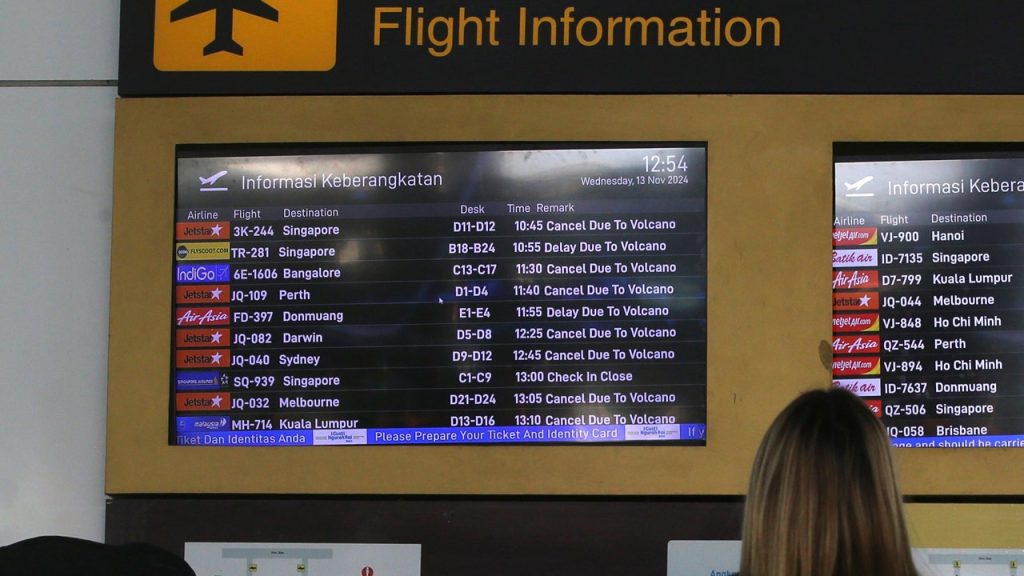Mount Lewotobi Laki Laki volcano in Indonesia has been erupting since November 4, resulting in the deaths of nine people and injuries to dozens more. The volcano has been spewing ash columns as high as five and a half miles, causing chaos for travelers in Indonesia and Australia. Thousands of people have been stranded at airports in both countries, with airlines canceling flights to and from Bali due to the ongoing eruption.
The volcanic activity has led to disruptions in air travel, with at least 84 flights affected at Bali’s I Gusti Ngurah Rai international airport over the past four days. Domestic and international flights have been canceled or delayed, affecting travelers from various countries. Several airlines, including Jetstar, Virgin Australia, Qantas, Air New Zealand, and Korean Air, have been forced to make changes to their flight schedules because of the volcanic ash.
In January, around 6,500 people were evacuated after Mount Lewotobi Laki Laki started erupting, resulting in the closure of Fransiskus Xaverius Seda Airport on the island. No casualties or significant damage were reported at that time, but the airport has remained closed due to ongoing seismic activity. In addition, three other airports in neighboring districts have been shut down due to safety concerns related to the volcanic ash.
Mount Lewotobi Laki Laki is one of 120 active volcanoes in Indonesia, a country that is prone to earthquakes, landslides, and volcanic eruptions due to its location along the Pacific Ocean’s “Ring of Fire.” The volcano, located in the East Flores district of East Nusa Tenggara province, is part of a pair of stratovolcanoes known locally as the husband-and-wife mountains, with its mate being Lewotobi Perempuan. The volcanic activity has created challenges for local authorities and travelers alike, highlighting the need for ongoing monitoring and preparedness.
Travelers at Bali’s airport have expressed frustration over the lack of accommodations provided by airlines after their flights were canceled, leaving them stranded. Some tourists have managed to find alternative flights to get home, while others remain stuck at the airport awaiting further information. The situation has also prompted governments, airlines, and airport authorities to take precautions and adjust their operations in response to the volcanic activity, ensuring the safety of passengers and crew members.
The eruption of Mount Lewotobi Laki Laki serves as a reminder of the unpredictable nature of volcanic activity and the impact it can have on communities and travel. The ongoing spewing of ash and volcanic materials has not only disrupted air travel but also posed risks to the safety and wellbeing of residents in the affected areas. With proper monitoring and coordination among stakeholders, efforts can be made to mitigate the effects of such natural disasters and ensure the protection of both people and infrastructure in volcanic-prone regions like Indonesia.


